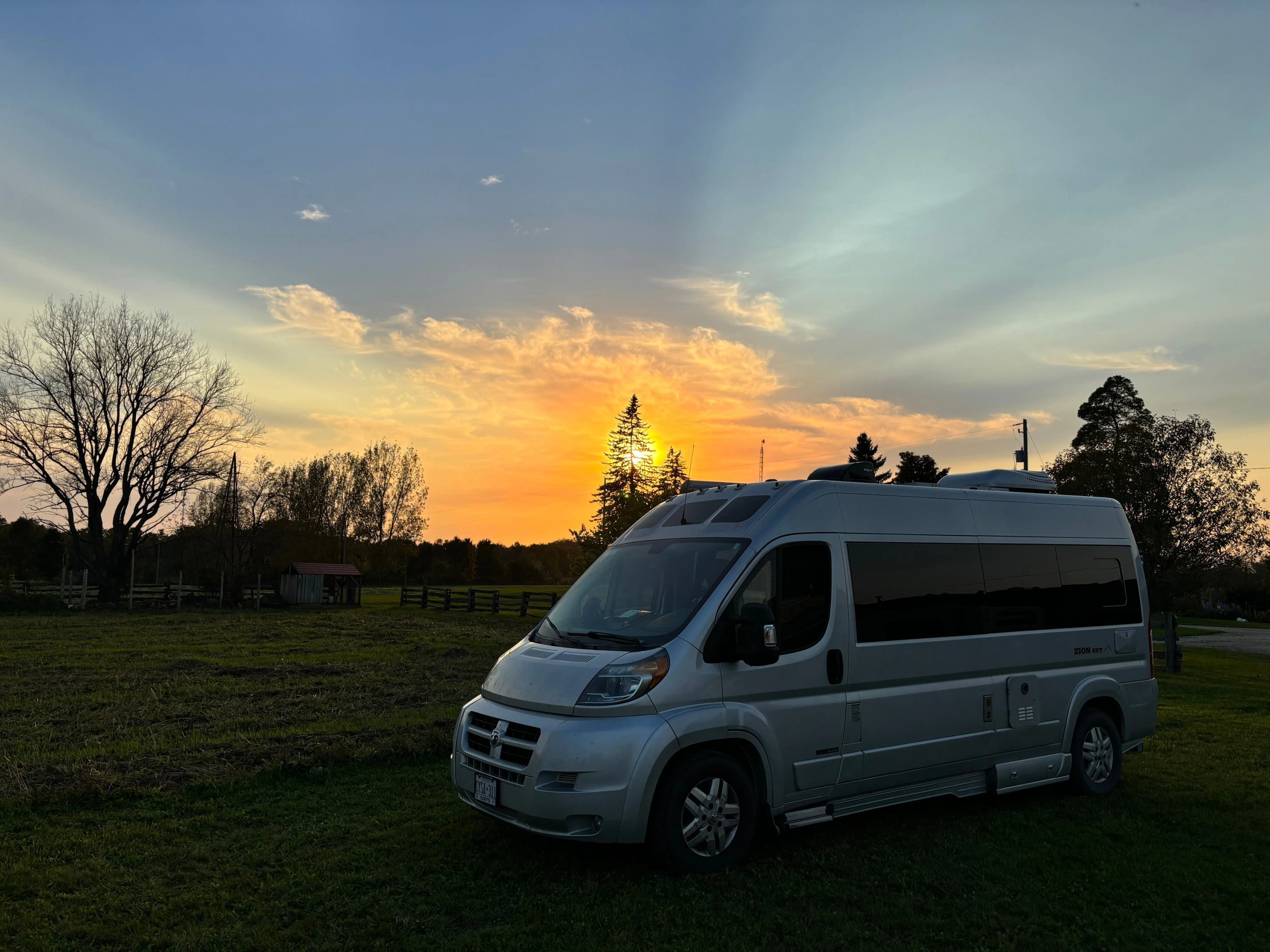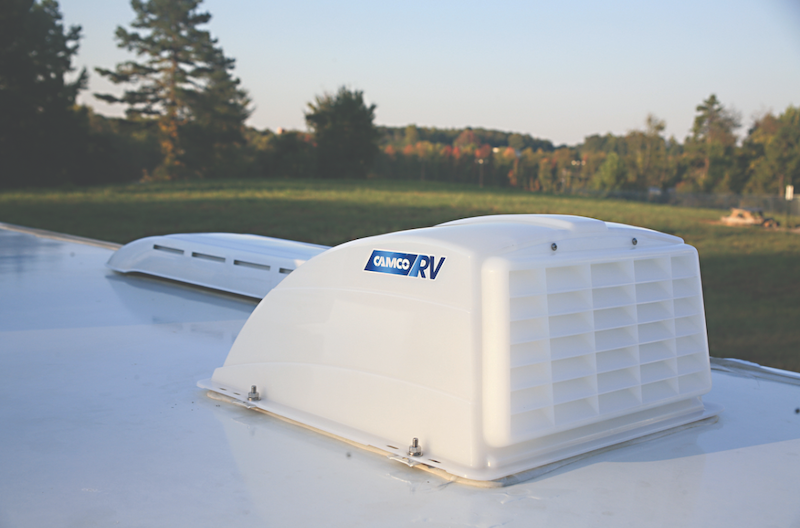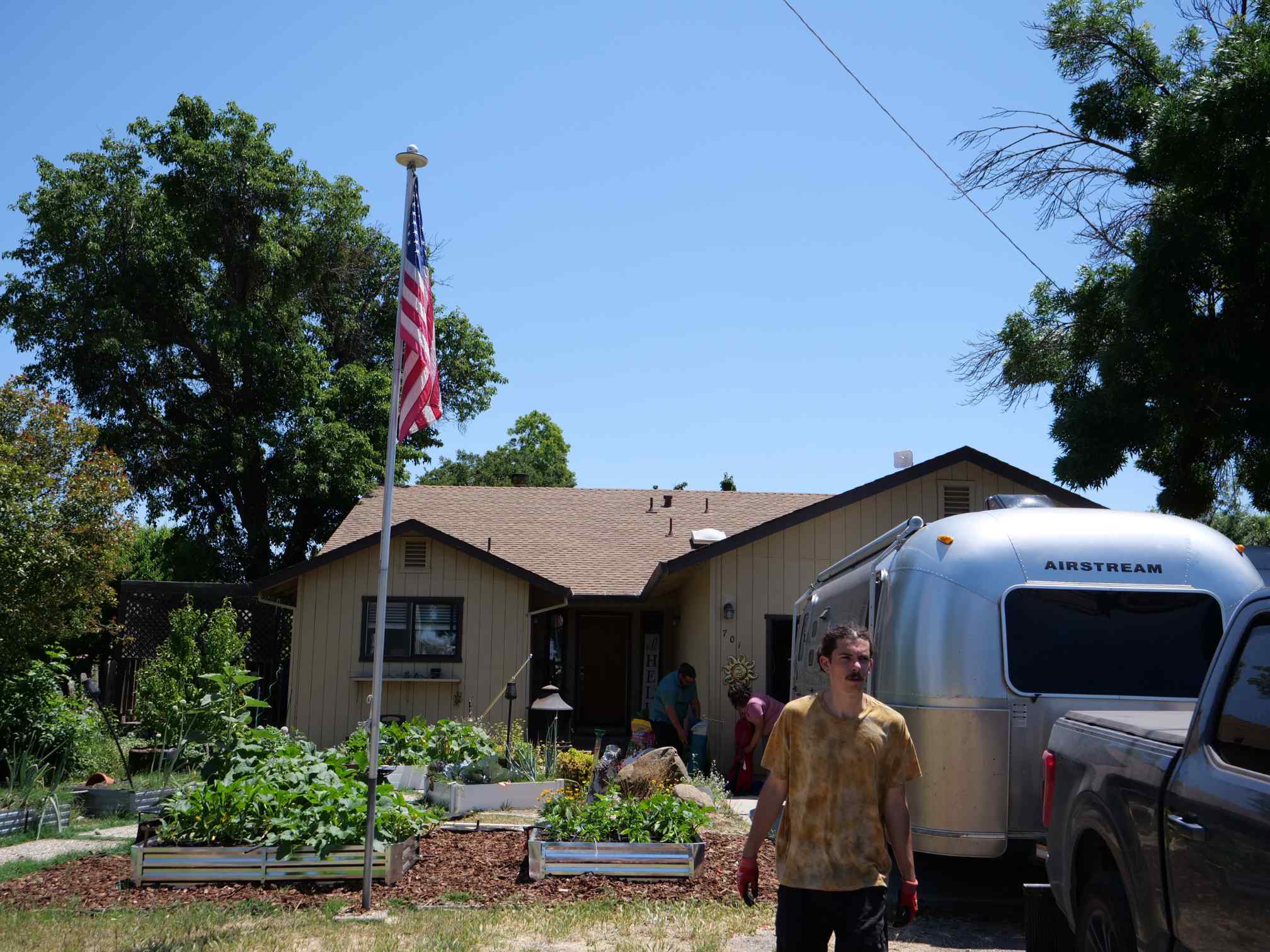Purchasing an RV? These Powerful Negotiation Skills Can Save You $5,000 (or More!)
As a seasoned lawyer with a decade of experience negotiating complex transactions, I always play to win. I know effective negotiation skills can mean the difference between thousands – and sometimes hundreds of thousands of dollars on behalf of my clients.
So, what’s this have to do with your RV purchase?
RV dealerships are banking on your reluctance to negotiate. Negotiation is a skill that requires sensitivity and emotional awareness – tools that quickly evaporate in a high-pressure sales environment. Have you ever stepped on an RV (or car) lot and found that you:
- Failed to do your homework?
- Didn’t know exactly what you wanted?
- Didn’t come prepared with a “next best alternative”;
- Weren’t able to walk away (even though you didn’t get what you came in for?)
Infographic courtesy of Headway Capital. Licensed under Creative Commons License 4.0
The truth is, when it comes to negotiation we can be our own worst enemies. If you can believe it 57% of us fail to recognize how assertive we’ve been during a negotiation.
Let me let you in on a secret: you don’t have to be a lawyer to be a great negotiator. Like the great Jerry Maguire once said: help me, help you. Follow along with these tried and tested negotiation tactics and you can find yourself saving over $5,000 on your next RV purchase.
Do Your Diligence
Lawyers know that negotiations are won and lost before you even step foot in the room. Before you even consider stepping on an RV lot your first job is to ask yourself the question: What exactly do I want?
Do you want a new or used RV? Do you plan on living in your vehicle or using it for the occasional road trip? New Tiffin Wayfarer Class C that sleeps 6 or lightly used Keystone fifth wheel that sleeps 10? George Siedel, University of Michigan Business School professor and renowned lecturer on negotiation tactics says: “The richest people in the world go into a negotiation knowing exactly what they want.”
Once you know exactly what you want (the make, the model, the amount you are willing to spend) take three full weeks to research your target. Make a list with comparable RVs within a 100-mile radius. Take notes on availability, prices, features, and the rebates offered on each vehicle.
Compile a binder with all your information, study it carefully and bring it with you to the dealership. Armed with this knowledge, it will be almost impossible to be taken advantage of during the negotiation process. Better yet, you will be surprised to find that you know more about the vehicle than even the salespeople do – putting yourself in a position of incredible leverage during the ensuing negotiations.
It might seem like a lot of work, but it’s well worth the hassle to save $5,000+ on your RV purchase, right?
Choose a Lead Negotiator
A word of advice: don’t let your sense of pride hit your pocketbook. I’m a bit embarrassed to admit this … but my father is the lead negotiator in our family (don’t tell my colleagues!)
Some of us are great writers. Others are great musicians or can weave a mean basket – but negotiation takes a certain confidence and assertiveness that not everyone possesses. Maybe you are too nice? Get nervous in pressure situations? Don’t like confrontation? If so, this may be a sign you should let someone else do the negotiating.
Once you’ve done your homework and know exactly what you want, send in your “big guns” to negotiate the deal. My father can negotiate down the price of a single slice of cheese at a farmer’s market – so I’m confident he will save me serious cheddar when negotiating big-dollar purchases.
Inform your lead negotiator ahead of time of the exact parameters of what you want. Make sure they know your “drop dead” price – the price you will walk away at no matter how bad you want the vehicle.
Swallow your pride. Maybe you are the right person for the job, but if not, have the self-awareness to find the person that is.
Be Aware of Anchoring Bias
Anchoring Bias is the phenomenon where the initial offer in the negotiation exerts a powerful influence over how the negotiations will go.
For example, you walk onto a RV lot and see your desired Tiffin Wayfarer Class C with an “On Sale!” sticker and a $99,999 price tag under it (purely hypothetical). Your brain will see “On Sale” and rationalize the price as a fair price even if the fair market value of the RV is only $92,000.
Because of anchoring bias, you may spend the rest of the day trying to negotiate down from the $99,999, when in actuality you should be negotiating from a much lower starting point of say, $95,000.
This is where your due diligence from Step #1 is critical. Through your research you should establish your own anchor and not be swayed by the bells and whistles designed to distract you from getting the best deal. If you can’t seem to agree on a negotiation starting point you can (a) walk out and go to another dealership or (b) go to your next best alternative (discussed in #4 below).
Always Have a Next Best Alternative
One of the most important things lawyers do before entering a negotiation process is identifying a “next best alternative”. You should never go to a dealership or RV Show without having a well-researched suitable alternative if your first choice doesn’t work out.
You may go to an RV show with the goal of getting your Tiffin Wayfarer Class C for $92,000. After visiting 4 different sellers, you realize that the best you are going to do is $96,000 – which is out of your budget. Do you walk away and give up your dream, or go to your next best alternative?
The next best alternative can be a wide range of options. It can mean: (a) pursuing another RV to purchase (b) waiting 6 months until the price drops on your first choice, or (c) putting off buying and renting a RV(s) for your next 2 or 3 road trips. By sampling different vehicles in different classes and price ranges you can figure out what features you like and don’t like and avoid making a costly mistake when you are ready to purchase.
Without the next best alternative, you may find yourself in “all or nothing mode”. Desperation causes us to do crazy things like buying an RV that is out of our price range then having to beg on hands and knees to our spouse for forgiveness (not like I would know anything about that).
Secure Outside Financing or Pay Cash
While technically not a negotiating technique, securing a good financing rate can save you thousands of dollars over a 10-15 year period. If you can pay cash for your RV – do it. I know it’s not an option for many of us, but if you can pay cash most dealers will gladly knock a few percentage points off the price knowing the full purchase price is paid off. Plus, you won’t pay thousands of dollars in interest over the term of the financing.
For the rest of us, try to secure financing from your bank or credit union prior to going to the dealership. The rates are generally (but not always) cheaper at banks. Second, with financing secured dealers know you mean business and you are in the market to buy now. Salesmen/women can smell a deal and will be more inclined to offer you the best price upfront rather than playing games and risking a lost sale.
Know When To Walk Away
All good lawyers know that you have to be ready to walk away if you can’t get the deal you came for.
The ability to walk away is so critical because it gives you ALL the power in the negotiation. Dealerships can only meet quotas when they are selling. Salespeople only make commissions when you buy. Expect that they will play hardball to get themselves the best deal, but at the end of the day, they need to sell you that vehicle to keep the business going.
Walking away is really a culmination of using all the negotiation techniques in your toolbox and still not getting the deal you want. Yes, it will happen. If you did your due diligence, secured financing had the next best alternative ready and still couldn’t get the deal you want – then it was never meant to be.
On the flip side, it would be foolish to walk away from a great deal because you were under-informed. I said it once and I will say it again: always do your due diligence!
Ready to Test Out Your New Skills?
Purchasing a new or used RV will be one of the most exciting moments in your life. You will not only be getting a shiny new toy in your driveway, but you will also unlock a world of possibilities and freedoms that will change the way you experience the world.
With an investment of this magnitude, I urge you to follow these tried and tested negotiation techniques. It will be exhilarating to test your newfound skills and I can guarantee you will save money on your RV purchase.
Don’t be reluctant to negotiate. With an extra $5,000 in your pocket, think of all the extra days you can spend on the road. The extra adventures, the extra laughs, and the extra time with your family and friends.
Sure, money can’t buy happiness, but it can help you create memories that will last a lifetime.
Easy Travels,
Stu Gold
————-
Stu is the Editor of BeginRV.com. He is a husband, proud father and ninja-like outdoorsman. He can replace brake fluid with one hand while changing his son’s diaper with the other.
Learn More About Boondockers Welcome
We promise not to spam you!










I often encountered difficulties in doing homework. I am glad that I found the site https://residencypersonalstatements.net/ and turned to the writers for help. They were able to help me complete the term paper correctly and I got a good grade. I am glad that the service helped me with a difficult task.